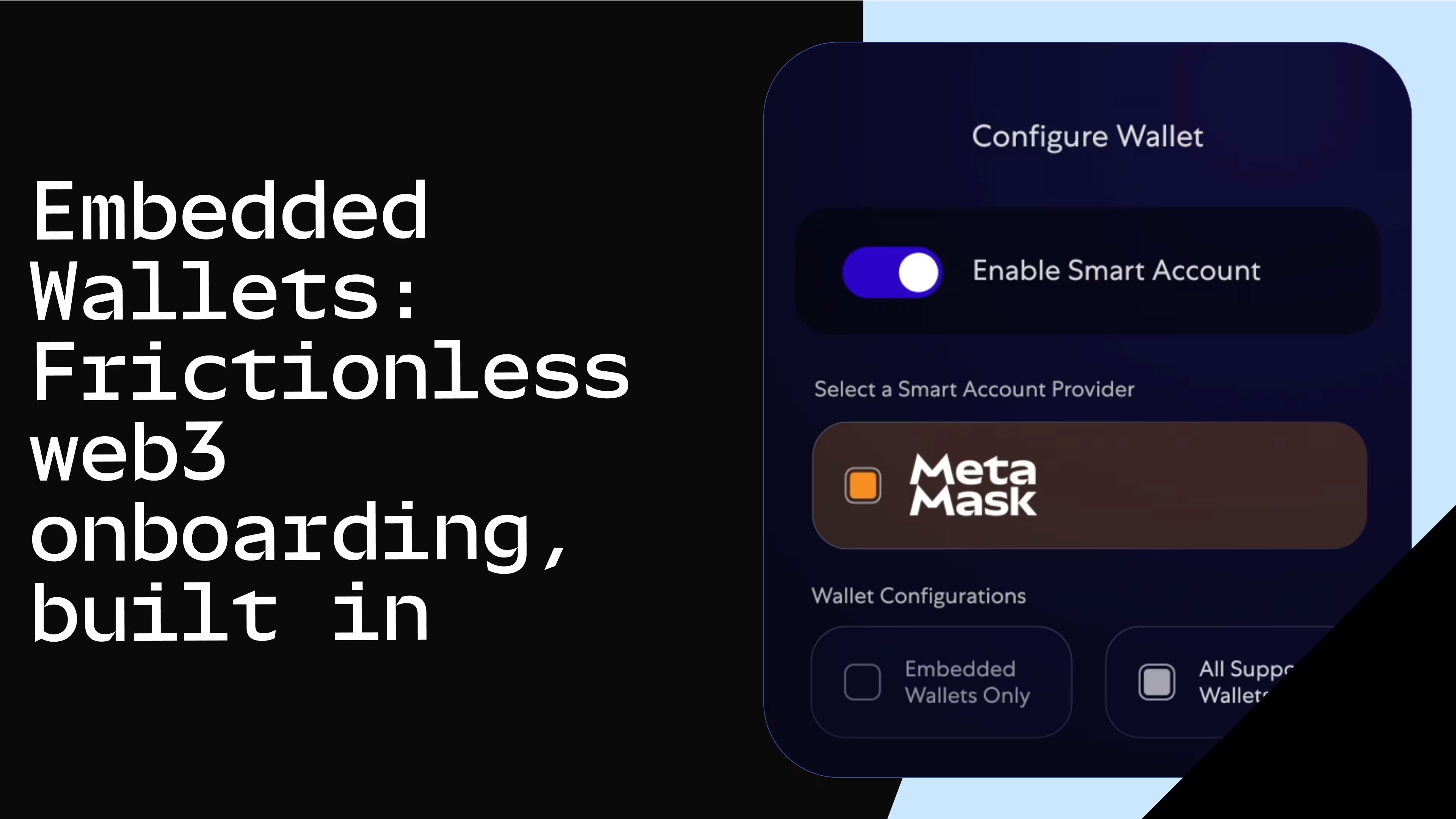Kingsley, a certified Ethereum Blockchain developer, serves as a technical writer at Consensys, with a special focus on developer tools. Before joining Consensys, Kingsley worked as a freelance backend developer on sevral platforms including Gigster and Braintrust. Boasting 5 years of software development experience, he's proficient with tools such as JavaScript (Node.js & React), GoLang, SQL, and Docker. Kingsley excels in producing step-by-step tutorials and how-to guides, utilizing the latest in web3 technology to help fellow developers build better dapps. Currently based in Dubai, Kingsley enjoys playing basketball and soccer in his free time
Read all articlesTop Three Libraries for Web3 Developers
This MetaMask Developer blog explores some of the top libraries for Ethereum development and their key features for web3 developers.

Web3 libraries are essential for dapp development on Ethereum as they offer tools to interact with Ethereum nodes, manage transactions, and integrate with smart contracts using a few lines of code. They simplify complex blockchain interactions by turning them into manageable functions, enabling real-time monitoring of blockchain events and facilitating wallet integration for secure user interactions. These libraries also improve web3 developer efficiency by abstracting the complexity of blockchain protocols to offer a consistent API across various networks.This blog covers the top three web3 libraries and their key features for developers looking to build on Ethereum and other EVM blockchains.Web3.js
Web3.js is a collection of JavaScript & TypeScript libraries that enable developers to interact with a local or remote Ethereum node using HTTP, IPC, or WebSocket connections. It serves as a bridge between Ethereum and applications, allowing developers to create dapps that can run on web browsers or servers. Web3.js provides a convenient and accessible interface to Ethereum and its core components, including smart contracts, transactions, and account management.
Key features of Web3.js include:Interact with smart contracts as JavaScript objects: Web3.js allows developers to treat Ethereum smart contracts as JavaScript objects, making it straightforward to interact with the blockchain’s data and functions directly from a web application.Get block and state information from Ethereum nodes: The library provides methods to query blocks, transactions, and states directly from Ethereum, which is essential for monitoring network conditions and validating transactions.Account and transaction management: Web3.js facilitates the creation of Ethereum accounts and the processing and signing of transactions, which are crucial for enabling users to interact securely and efficiently with the blockchain.Subscribe to specific on-chain events: The library provides functionality to subscribe to events triggered by smart contracts, allowing applications to react in real time to network changes or updates.
Ethers.js
Ethers.js is a lightweight library that aims to provide a simpler and more compact way to interact with the Ethereum blockchain and its ecosystem. It is designed to be easier to use and more modular than Web3.js, making it an attractive option for developers looking for an efficient and streamlined library.
Key features of Ether.js include:Secure private key management: Ethers.js prioritizes security by ensuring that private keys are stored on the client side, safeguarding them from unauthorized access and potential security threats.Import and export JSON wallets: The library supports importing and exporting JSON wallets compatible with clients like Geth and Parity, facilitating easy wallet management.Versatile network connection options: The library can connect to Ethereum nodes using various providers, such as INFURA, JSON-RPC, Etherscan, Alchemy, Cloudflare, or even MetaMask, offering developers flexibility in how they interact with Ethereum.Efficiency and size: Ethers.js is incredibly efficient with a tiny footprint (~88kb compressed; 284kb uncompressed), making it ideal for web applications where performance and loading time are critical.Extensive documentation: It boasts detailed and well-maintained documentation, which assists developers in quickly learning and effectively utilizing the library.
Web3.py
Web3.py is a Python library designed to interact with the Ethereum blockchain. It was originally inspired by the Web3.js JavaScript API but has since evolved to cater specifically to the preferences and requirements of Python developers, incorporating Pythonic idioms and functionalities that enhance ease of use and integration with the Python ecosystem.
Key features of Web3.py include:Middleware configuration: The library allows for custom middleware configuration, enhancing control over processing requests and responses in interactions with Ethereum nodes.Utility functions: Web3.py includes a suite of utility functions for tasks such as encoding and decoding data, converting currency units, cryptographic hashing, and facilitating common Ethereum-related operations.Data fetching and transactions: The library provides extensive APIs for fetching data from the blockchain (such as balances, transactions, and block data) and creating, signing, and sending transactions.Smart contract interaction: Web3.py supports deploying and interacting with smart contracts, including methods to instantiate contract objects, call their functions, and handle contract events.Filtering and event handling: It offers powerful filtering options for monitoring blockchain events and logs, which is crucial for applications that need real-time updates from the network.
Advance web3 dapp development with MetaMask Developer
The libraries discussed are an excellent starting point for launching your dapp development journey quickly. However, they might not cover some advanced features necessary for seamless integration with leading wallets.Visit the MetaMask Developer portal for more advanced development needs, such as Sign-in-with-Ethereum (SIWE), support for EIP-6963, and seamless integration with MetaMask via Snaps. It offers a comprehensive suite of tools, APIs, and SDKs designed to streamline user onboarding and enable developers to forge unique, permissionless wallet connections and in-dapp experiences tailored for MetaMask users.



